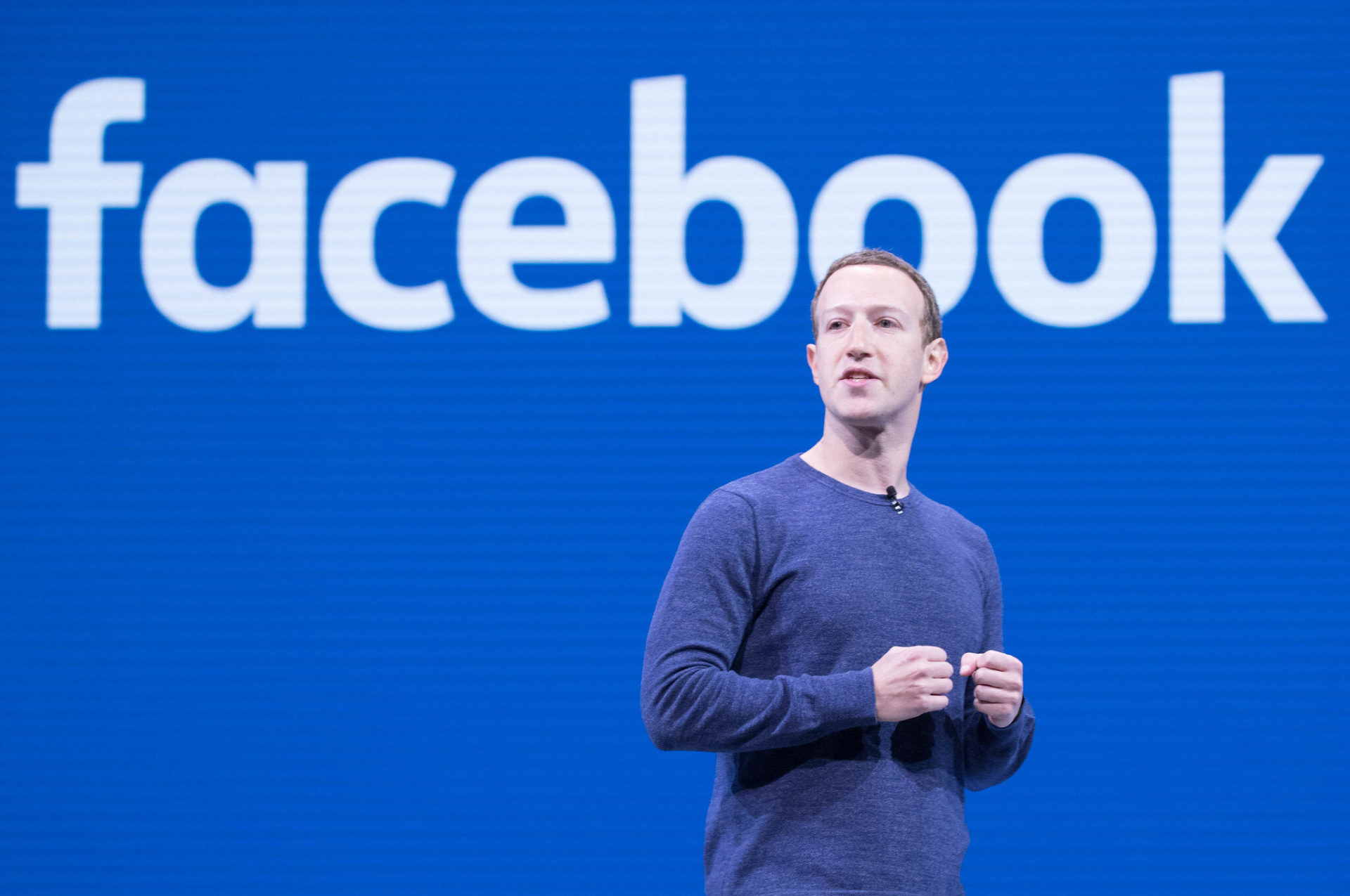
In what is perhaps the most unknowing coalition the world has ever seen, psychologists, privacy advocates, cybersecurity experts, comedians, world leaders and even one of the founders of the world wide web have been sounding the alarm for years on the serious harm social media has done to the fabric of society and democracies around the planet.
Prior to the revelations of the past few weeks that Facebook is directly harming the mental health of teens, especially girls, the company has essentially turned a blind eye to human trafficking, actual war crimes, drug cartels, and the shifting of moderate political parties into extremists.
For years, Mark Zuckerberg and Facebook executives have marketed themselves as an apolitical tool that is occasionally abused, but the recent testimony of Frances Haugen has revealed that the company has prioritized likes and engagements while intentionally ignoring its damaging algorithms and the multiple intelligence operations attacking democracies globally. Many voices warning about these problems were basically ignored, including my own.
Facebook, and the current generation of the internet economic model – free products for the entire world in exchange for massive privacy violations and data mining of everyone – took roughly two decades to generate trillions in wealth for millions while leaving broken relationships and societies in its wake. However, this problem of polarization and crime online didn’t start with social media. It’s been there since the start and it’s time the internet itself was examined as a whole to shed light on how these problems can really be fixed.
Humanity has never had to face these particular challenges in our past. Progress in terms of communication, education, and interaction has historically been slow for millennia, but the Internet has caused an explosion of innovation. What allows me to give a live TEDx Talk in real-time on the other side of the planet from the comfort of my own home is a wholly unique creation of the last few decades or so. Prior to the invention of the airplane, humans would travel weeks or months to achieve the same feat in person.
When the millions of early adopters first began going online they were required to use a traditional phone line to connect to local service that acted as a repository of information and allowed users of that service to interact. As network infrastructure and routing matured, these services consolidated into national platforms that allowed people from all over instant access to each other virtually. Compuserve, Prodigy, and the eventual behemoth America Online (AOL) all offered; easy to send an email on the internet, chatting with anyone else on the service, and also the ability to look up information at will. This was the first generation of widespread communication and information sharing and laid the foundation of the rapid increase of societal ills.
As the internet technologies exploded, so did society’s addiction to it. Beyond the concerns that many had when the television became widely available to the public, studies confirmed that many online were endlessly hooked. Like most addictions, this also brought isolation for millions of people and destruction of otherwise healthy relationships.
On top of this issue, since a person didn’t actually have to log in publicly using their own name, anonymity brought with it a new level of anger and a sense of security that allowed for that type of free expression online. Since the other users didn’t really know each other, people basically felt free to rage online.
By virtue of this unforeseen phenomenon, the United States had to scramble and create laws that absolved the AOL’s of the world from angry rhetoric and harassment its users were spewing on their platform in chat rooms and emails. Section 230 of the 1996 Communications Decency Act (which I’ve written about extensively) was an early warning to the coming issues of polarization online that everyone ignored.
This was also the era that really started the harmful cycle that children face thanks to cyberbullying. No longer was a child’s home a safe haven from the daily torment of a schoolyard bully. It’s no wonder that the increase of internet adoption during this era saw a rise of depression, suicides and started the era of school shootings in 1999 with the Columbine massacre in Colorado which kicked off news story after news story throughout the years of school shooters.
Also coinciding with the new exploding internet was the creation of polarizing political commentary. This was the era that birthed Rush Limbaugh who ruled the AM airwaves and turned stations conservative in order to capitalize on the profits he brought, 24-hour cable news channels that realized that the more sensational the story the more viewers and therefore the more advertisers they got. I still remember when Matt Drudge broke a presidential scandal that traditional news outlets were sitting on, which validated internet news reporting and also underscored that confirmation bias was alive and well on the internet. Political polarization had fertile soil to expand and grow into what eventually would become a presidential adviser stating that she had “alternative facts.”
Social media evolved from this era in the early 2000s with platforms like Friendster and MySpace all competing for dominance until Facebook arrived and became the overwhelming choice for the entire planet – now with over 3 billion users. As the political rhetoric and polarization ramped up around the globe, Facebook was there allowing its algorithms to prioritize the most extreme of positions as that was the most profitable traffic their platform saw. As they embedded themselves worldwide, humanity began to see Facebook and its products as indispensable in their daily lives as it brought them not only news on their friends and family but also because Facebook itself was seen as a news source despite not being an actual news publication themselves.
This had the net effect of allowing misinformation and disinformation to spread rapidly as friends tended to trust friends as they posted articles and news that unknowingly aligned with their confirmation bias. This culminated in extreme polarization in several countries and even heavily contributed to genocide in Myanmar, not to mention fostering authoritarians around the world and the rise of political extremism virtually everywhere including the United States.
Even if the world were to collectively come together and decide to shut down Facebook, and its other harmful properties like the mentally unhealthy Instagram and the not-as-private-as-they-claim WhatsApp, the damage is done. Smaller competing platforms would be there to absorb the influx of Facebook “refugees” and help to perpetuate the social media addiction. The anonymity would still continue to allow everything from school bullies to foreign intelligence operations to use these platforms to harass, cajole or continue to drive wedges into societies. Human isolation, depression, rage, and suicide would all still be an issue as they look for new homes online.
Unless the world starts taking action now, free societies will continue careening towards extremism and anger at this rather fast pace. In that vein, in order to stop the bleeding and begin recentering the world the following needs to be done:
-
Education on the various problems we face with misinformation, disinformation, and extremism need to be promoted and pushed to all users. Classes on logic, critical thinking and how to research should be widely offered.
-
Laws that prevent children under the age of 18 from using social media should be enforced. Studies show that kids who don’t adopt social media until after the age of eighteen are much better off emotionally and mentally.
-
Create an immutable ID system online that will help thwart the hyperbolic and polarizing disinformation campaigns, as well as the ability for someone to anonymously harm others online. Fortunately, we are seeing some excellent developments in that vein from startups like humanID that are working on these and similar issues.
-
Create transparency laws worldwide that are enforced on any information that is widely dispersed. Those “perfect” Instagram models should have to state that their images are heavily manipulated (Norway just passed a law on this one). Opinion articles should the clearly labeled.
-
Organizations that create online presences such as Facebook groups should be required to disclose locations and have full transparency. These groups need to be verified before being allowed to operate. Facebook is starting to enforce geographic transparency but its efforts to find and stop foreign intelligence operations as been purely retroactive according to all reporting. Verifying first would cut way down the ability of foreign governments to meddle in other country’s affairs online.
-
Attempt to break the addiction cycle. The creator of the “like” for Facebook regrets this contribution to the world. Understanding addiction and building in mechanisms that intentionally make social media less addictive is a much-needed step.
-
Expose all users to opposing views. Spanish novelist Miguel de Unamuno once stated; “Fascism is cured by reading and racism is cured by traveling.” Polarization online is cured with awareness of valid viewpoints and acceptance, though not agreement, of differing beliefs.
Will any of the above happen any time soon? It’s doubtful given the current polarization in governments around the world but if we do nothing the next time you read an article from me, I may be forced to praise our dear leader, whomever that may be.
A free and open internet that benefits all. Like a democracy, it is a fragile endeavor that requires work to keep it free and open for everyone.

Nick Espinosa
Nick is the founder and CEO of Security Fantatics, the Cybersecurity/Cyberwarfare division of BSSi2 dedicated to designing custom Cyberdefense strategies for medium to enterprise corporations. As a member of the Board of Advisors for Roosevelt University’s College of Arts and Sciences as well as their Center for Cyber and Information Security, the Official Spokesperson for the COVID-19 Cyber Threat Coalition and a board member of Bits N’ Bytes Cybersecurity Education as well as Strategic Cybersecurity Advisor for the Private Directors Association, Nick helped to create an NSA certified curriculum that will help the Cybersecurity/Cyberwarfare community to keep defending our government, people and corporations from Cyber threats globally. In 2017 Nick was accepted into the Forbes Technology Council, an invitation-only community for world-class CIOs, CTOs and technology executives, and is a regular contributor of articles which are published on forbes.com as well as smerconish.com.






